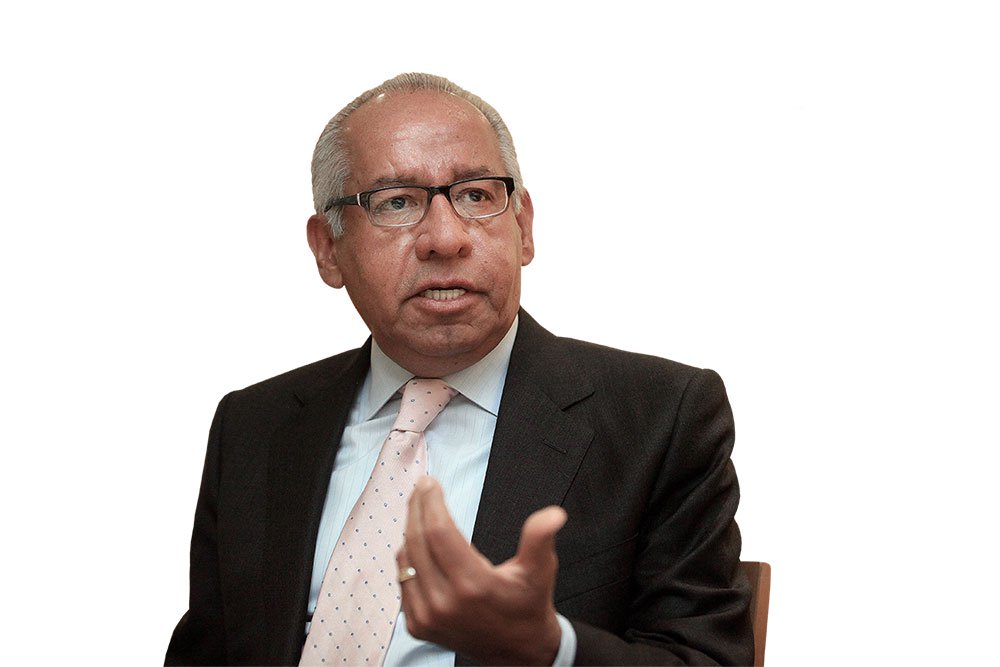Witness in Guzmán trial said attorneys general and 70 Federal Police were on his payroll
by the El Reportero’s wire services
More testimony of wrongdoing by former high-ranking officials in the Mexican government has emerged in the trial against former Sinaloa Cartel capo Joaquín “El Chapo” Guzmán in New York.
Ignacio Morales Lechuga is the latest ex-politician to be implicated after Colombian drug trafficker and witness Jorge Milton Cifuentes Villa declared that he had been on his payroll.
Morales is now a notary public in Mexico City but was the federal attorney general between 1991 and 1993 in the latter years of president Carlos Salinas de Gortari’s administration.
In his deposition, Cifuentes declared that he had bribed attorneys general in Mexico along with 70 Federal Police who protected his drug trafficking operations in the country.
Cifuentes, who used to be the principal supplier of cocaine to the Sinaloa Cartel, added that the officials on his payroll did not know they were employed by him because they dealt with a front man.
Morales declared the accusations were “completely false and defamatory.”
He has asked the federal Attorney General’s office to request a certified copy of the witness’s statement from the government of the United States.
Cifuentes told the court that his front man, Juan de Dios Rodríguez Valladares, operated the warehouse where the cocaine was stored in Mexico City. But things turned sour after the Colombian suspected Rodríguez of stealing their product and the latter attempted to kill Cifuentes.
The Colombian paid two police officers US $500,000 to apprehend Rodríguez and turn him over to the cartel. He was subsequently stabbed to death.
Guzmán’s trial was told at the start that the Sinaloa Cartel had bribed ex-presidents Enrique Peña Nieto and Felipe Calderón. Several other former officials have been identified by witnesses as having accepted cartel payoffs.
Source: El Universal (sp), Milenio (sp)
Mexico denies agreement with US on Central American migrants
MEXICO, DF, Dec 21 – Mexico on Friday denied the existence of an agreement with the United States that describes it as the ”third safe State” for Central American migrants, as a result of the decision to return them while their asylum application progresses.
The secretary of Foreign Affairs, Marcelo Ebrard, clarified in the morning press conference of President Andres Manuel Lopez Obrador that this is not Mexico’s case, because it is a measure taken under the laws of the United States.
Mexico is reacting to this resolution, which is specific to the sphere and jurisdiction of the United States, and in that case, there is no question of signing a treaty or an agreement, in which our country accepts to be a third safe State. We have simply adopted a stance for humanitarian reasons. Mexico will have to define if the people who are in our territory today, who pass to the US, have an interview in the United States and if that country returns them as their situation is evaluated, Mexico will have to resolve if they are deported or accepts them, because it is not a treaty. And they know that we would not accept such a deal because we have told them several times.
Ebrard noted that what we have to solve is whether we accept or deport those people who are now on Mexican territory, and that the overwhelming majority are from Central American, not only in Tijuana, but in other points of the border.
Lopez Obrador trusts in creation of Mexican National Guard
The President of Mexico, Andres Manuel Lopez Obrador, expressed Thursday his expectation that the Congress of the Republic will approve the creation of the National Guard to fight violence and corruption.
The president, in his traditional morning press conference at the National Palace after his daily meeting with his security cabinet, ratified Security Secretary Alfonso Durazo’s statements that if the proposal is not approved in the House of Representatives, he will withdraw the army to its garrisons.
The hypothetical decision generated criticisms regarding that there is fully aware of the police forces’ ineffectiveness in the battle against delinquency, which citizens’ denunciations involve with corruption.
Criticism generally turns around that in its first phase the National Guard will be integrated by the army, sailors and federal police for which, they consider, the security would be militarized.



